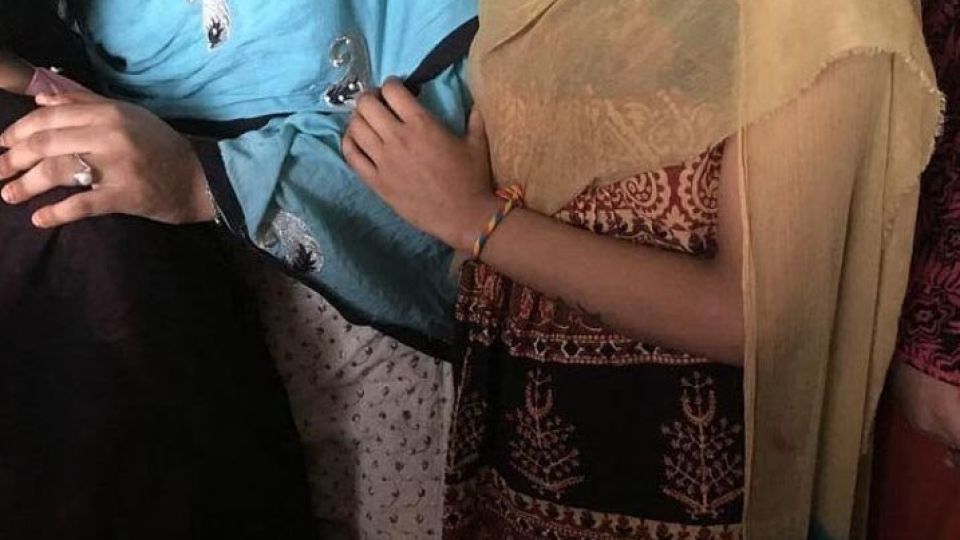July 31, 2023
DHAKA – As I gazed out the aeroplane window, watching the vast Atlantic Ocean stretched beneath me, my emotions were heavy. I was returning from the United States to my home country, Bangladesh, after completing a transformative Community Engagement Exchange fellowship with the University Of Maryland’s SAFE (Support, Advocacy, Freedom, and Empowerment) Center for Human Trafficking Survivors. Afterwards, I couldn’t help but reflect on my incredible journey in combating human trafficking and the two survivors, Liza and Taylor, who left an indelible mark on my heart.
Throughout my time in the US, I was immersed in the SAFE Center’s work, witnessing first-hand the dedication of professionals committed to healing and empowering human trafficking survivors. As a young professional working in the Brac Migration Programme in Bangladesh, I aimed to learn from this experience and bring back knowledge and strategies to fortify our fight against this heinous crime.
One of the first survivors I met in Bangladesh was Liza (not her real name), a courageous woman from Bagherpara, Jashore. Her story was heart-wrenching and laid bare the harsh realities that countless victims face. Liza’s husband had betrayed her trust, dragging her into the dark abyss of trafficking. He coerced her into prostitution and, in a cruel twist of fate, she ended up serving time in jail for crimes she never committed. Even after her release, Liza found herself entangled in a life she had never chosen, forced to continue living with her abuser.
I vividly remember interviewing Liza in December 2021. Her strength and resilience shone through her words, despite the immense pain she had endured. As she recounted her journey, my commitment to the cause grew stronger. Liza’s story became a powerful reminder of the urgency to break the cycle of exploitation and provide survivors with the support they need to rebuild their lives. I have met many survivors like Liza in Bangladesh in the last three years.
In the US, I met Taylor, a survivor from Baltimore City of Maryland. Her story mirrored Liza’s in its foundation of betrayal by a family member. Taylor’s uncle subjected her to the horrors of pornography, robbing her of her childhood and innocence. Escaping the abusive environment, Taylor sought help from law enforcement and found her way to the SAFE Center.
Interviewing Taylor, I marvelled at her bravery and determination to rise above the darkness that had engulfed her life. Taylor’s story resonated deeply with me, highlighting the importance of comprehensive support systems that empower survivors to reclaim their lives.
As I flew over the ocean, bridging the distance between the US and Bangladesh, the stories of Liza and Taylor stayed with me, a testament to the shared experiences of survivors across continents. Human trafficking leaves victims scarred, vulnerable, and needing a helping hand, as evident in recent data from Bangladesh and the US.
Bangladesh is the sixth largest migrant-sending country globally and the eighth largest remittance-receiving country. People here always dream of going abroad, and they are exploited many times. Human trafficking is an organised, heinous crime that involves forced labour, sexual slavery, or commercial sexual exploitation. There are at least 3,246 cases of human trafficking still awaiting justice in Bangladesh, according to a recent report from the Ministry of Home Affairs.
The US Department of State’s Trafficking in Persons (TIP) report underscores the magnitude of human trafficking as a global concern. While Bangladesh strives to combat trafficking, improvements in victim identification and support services are needed. The US, a Tier 1 country, faces unique challenges in addressing trafficking within its borders and among vulnerable populations.
Each year, the World Day against Trafficking in Persons is observed on July 30. This year’s theme was “Reach every victim of trafficking, leave no one behind,” which aims to raise awareness on disturbing developments and trends, and calls on governments, law enforcement, public services, and the civil society to assess and enhance their efforts to strengthen prevention of trafficking, identify and support victims, and end impunity for traffickers.
As I returned home, I carried with me the determination to continue protecting the vulnerable and empowering survivors. For me, Liza and Taylor’s stories will forever serve as beacons of hope, guiding my efforts to eradicate human trafficking and ensure every individual lives a life of dignity and choice.
The journey to combat human trafficking is far from behind us, but we can bring about lasting change with collective dedication and collaboration. Together, let us break the chains of exploitation and build a future where survivors can find solace, support and justice.
Shaila Sharmin is the deputy manager of Brac Migration Programme and a US Department of State exchange alumni.


